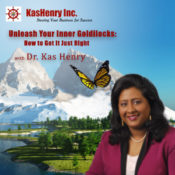Organizational Culture: The Foundation for Success By Dr. Kas Henry
Organizational culture is the synthesis of values, beliefs, language, and norms that exists...
Read Moreby VoiceAmerica | Aug 1, 2017 | Empowerment | 0 |
Organizational culture is the synthesis of values, beliefs, language, and norms that exists...
Read Moreby VoiceAmerica | Jul 25, 2017 | Empowerment | 0 |
Harmonizing Work & Motherhood: Can We Afford Not To? Women are an integral part of the...
Read Moreby VoiceAmerica | Jun 30, 2017 | Empowerment | 0 |
Mother Earth. Mother Nature. Mother Land. Mother Tongue. All that nurtures and sustains our very...
Read Moreby VoiceAmerica | Jun 29, 2017 | Empowerment | 0 |
When Adam Smith prescribed a modern economic framework to free the world of the oppression of...
Read Moreby VoiceAmerica | Jun 23, 2017 | Empowerment | 0 |
Last week we explored the role of education in shaping the transformational journey needed to...
Read Moreby VoiceAmerica | Jun 19, 2017 | Empowerment | 0 |
I hail from a society that believes “knowledge is food for the soul”. The knowledge which...
Read Moreby VoiceAmerica | Jun 9, 2017 | Empowerment | 0 |
The life we sustain by our choices are our own. This is nowhere truer than in a capitalist...
Read More


